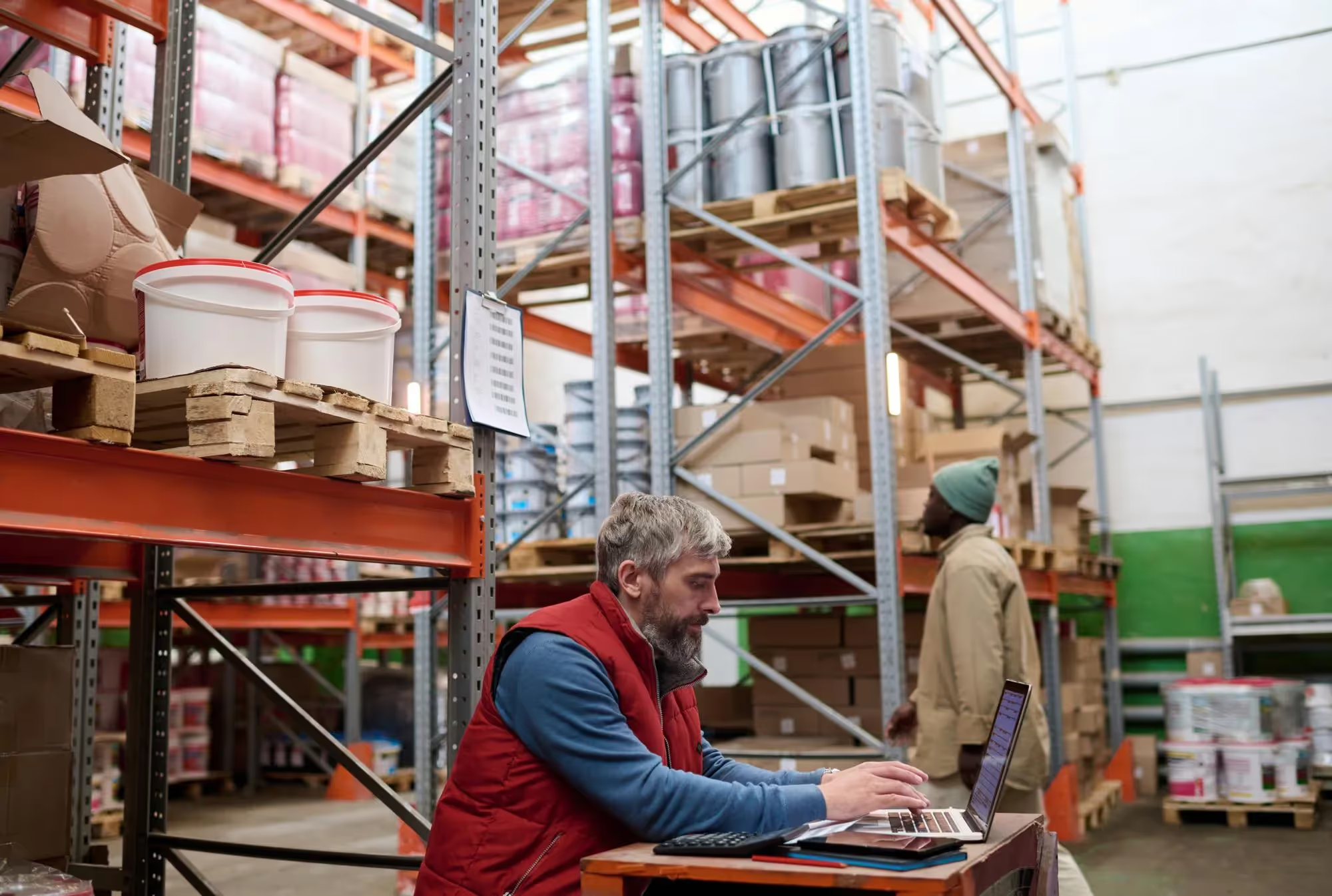13 challenges third-party logistics companies will face in 2023

By 2026, the global third-party logistics (3PL) market can reach $1.3 Trillion. It’s a growing industry in which many businesses rely on legacy technology and old ways of doing things. Both small and major 3PL companies have to adapt to increasing demand for their services, but they also have to meet new customer expectations. Thanks to the better use of technology, the 3PL sector can become an engine that will drive the new economy.
It is impossible to accurately predict the specific software challenges that 3PL companies will face in 2023, as this will depend on a range of factors, including the state of the economy, advances in technology, overall demand for IT professionals, and changes in customer preferences and requirements. However, based on current trends and developments, third-party logistics providers will likely face 13 challenges thoroughly described in the paragraphs below.

Challenge #1: Integration and interoperability
3rd party logistics companies more and more often integrate their systems with those of their customers and other supply chain partners in order to exchange information and facilitate order fulfillment. It requires robust integration and interoperability capabilities, as well as the ability to connect to a wide range of systems and technologies. Tasks like this are already complex and time-consuming. Integration that allows for efficient and effective logistics operations becomes even more complicated when we consider that any partner in the global supply chain can own a proprietary transportation management system. It can be even more challenging if the partner’s logistics services rely on legacy technology.
Challenge #2: Data management and analytics
Third-party logistics businesses handle large amounts of data, including information about the whole supply chain: orders, inventory levels, shipments, and customer requirements. Businesses must manage this data efficiently and securely to support decision-making and ensure high customer satisfaction. With suitable supply chain management systems in place, collecting and analyzing large amounts of data is easier. Logistics industry leaders who want to make informed decisions and provide valuable services need advanced data management, robust analytics capabilities, and the ability to process and interpret complex data sets in reasonable timeframes.
Challenge #3: Real-time visibility and tracking
In 2023, excellent customer experience necessitates supply chain visibility. Companies that compete in the field of CX need the status of orders, shipments, and inventory levels accurately tracked and presented to several parties without compromising data security. People want to know where their goods are and be able to change their decisions regarding warehousing and delivery easily - ideally via an app or website.
Moreover, easy access to information about a supply chain disruption, an order volume, shipping costs, and specific warehouse locations simplifies the lives of many employees, from truck drivers to managers. Such solutions require reliable IT systems and communication networks that can handle large amounts of data to provide accurate, up-to-date information to the logistics provider’s customers, employees, and partners (but nobody else).
Challenge #4: Automation and digitization
Organizations in the 3PL industry will continue to automate and digitize their operations in order to increase fulfillment efficiency and reduce costs. In most cases, an automation expert brought to the 3PL provider company will have to optimize the key processes, such as warehouse inventory management and transportation planning, before automating them.
Since optimization necessitates understanding, and because of the general labor shortage, it can be challenging to find IT specialists who understand how a 3PL company functions and can deliver advanced software solutions tailored to the needs of the transport and logistics industry.
Challenge #5: Managing inventory
Large logistics companies need to accurately track and manage considerable quantities of products, often across multiple warehouses in different locations. When operating globally, inventory management produces vast amounts of data. As a result, businesses must ensure that the systems they’re using are easy to use for employees who often speak diverse languages. Such software must be easily understood in every distribution center and beyond - the better the user experience, the fewer mistakes.
Challenge #6: Ensuring security
Data security is a top priority for all businesses, and third-party logistics providers must also protect their systems from unauthorized access and malicious attacks. Every 3PL provider handles sensitive and valuable information, such as customer personal data and inventory details, making them a worthwhile target of ransomware and other cyberattacks. The only reliable way to protect a third party logistics provider from hackers is to have strong security measures aligned with the highest information risk management standards.
Challenge #7: Maintaining compliance
Supply chain organizations often have to meet regulatory and compliance requirements related to transportation, warehousing, data protection, and logistics operations. It becomes incredibly challenging if they operate in multiple countries with different regulations, particularly as those regulations evolve and change over time. For example, American third-party logistics services and transportation services need to comply with European Union regulations in order to operate in the EU.
Like all companies, third-party logistics providers should develop ongoing, continuous verification processes to ensure their IT systems are secure and compliant with relevant laws and standards.
Challenge #8: Dealing with outdated technology
Technology should help businesses do more work faster and better. However, many companies in all industries work with legacy systems and technologies that are outdated and difficult to maintain. It leads to inefficiencies and hinders their ability to keep up with the latest trends and innovations in the industry. 3-PL companies are no different, and even organizations partially operating in the cloud often use some digital tools, such as supply chain solutions, that would benefit greatly from modernization and migration.
Challenge #9: Rising Costs
3PL companies must carefully balance their IT budgets to ensure they have the proper systems in place without overspending. Technology can be a significant expense for every business, and the IT cost varies immensely, depending on a given solution’s complexity and the required support level. Hiring an in-house IT team can quickly increase operational costs because the best engineers simply must be well-paid.
After all, companies from all industries will gladly take them in if you fail to do so. That’s why more and more companies hire external IT consultants to select the tools and technologies that match the needs of supply chain management professionals.
Challenge #10: Scalability
When third-party logistics businesses grow and expand their operations, their IT systems must scale to support the increasing consumer demand. It’s a significant challenge that requires not only choosing the right technology but also having the expertise and resources to implement and maintain it. A third-party logistics company with outdated or inflexible systems or one lacking suitable technology talent must get creative when dealing with this issue.
Challenge #11: The talent shortage
IT professionals today have more job opportunities than ever. Considering that the US Bureau of Labor Statistics report on 20 Fastest Growing Occupations includes three different types of IT jobs, it will not change in 2023. As follows, retaining qualified staff will be more challenging than ever.
Meanwhile, hiring unqualified individuals often results in increased costs, and any mistakes they make can result in supply chain challenges that will damage the company’s reputation. On the other hand, leveraging automation technology wherever possible also necessitates expert support but ultimately decreases your reliance on manual work.
Challenge #12: AI/ML Technology
The most reliable way to speed up supply chain operations and improve process effectiveness is by utilizing artificial intelligence and machine learning in a robust warehouse and logistics management ecosystem. Unfortunately, solutions available today are usually unsuitable for most companies, so they have to hire software architects and engineers to tailor the systems to their individual needs.
Challenge #13: Environmental Concerns
All trucks and carriers produce emissions, and the climate crisis demands that 3PL companies look for ways to reduce their carbon footprint. It’s probably the most significant challenge, as there is no realistic alternative to trucks yet. Electric vehicles are expensive and don’t have as much range as diesel trucks. Of course, reducing emissions even by a small percentage is worth it, and technology can help in route planning and more efficient transportation. Still, proper implementation across a whole vehicle fleet presents a challenge that some 3PL companies will face in 2023.
Where there are challenges, there are opportunities
The technology challenges third-party logistics companies will face in 2023 will likely impact fields of efficiency, reliability, and security. If they want to thrive in the coming years, industry leaders must do everything they can to improve data security and provide outstanding customer service. To stay on top, they have to deliver on their promises to clients and improve their operations.
Maxima Consulting entered the logistics industry in 2020 and has since completely transformed operations at one of the leading 3PL companies in North America. Maxima’s broad expertise and our Global Delivery Model allow our clients to remain ahead of their competitors.
Ensure your 3PL company has reliable and future-proof systems in place by scheduling a complimentary consultation with our team.







